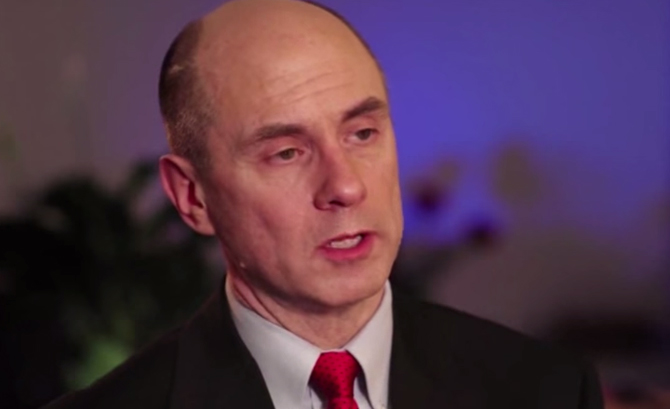But Steve Linder, a Republican political consultant representing the Michigan Responsibility Council, which consists of successful entrepreneurs who want to get into the medical marijuana business, want the dispensaries shut down immediately.
"This gives a carve-out for people who knowingly are breaking the law," he said. "Everyone feels compassion for people who need access to medicine. But it's a patient’s responsibility to find themselves a caregiver."
This guy ^^, is a shithead is a fucking paid piranha for big money interests and doesn't give a shit about some kid with seizures.....perhaps he will have a movement disorder some day (if only karma is for real, he will get his).
Michigan officials prepare for influx of medical marijuana applications
Medical marijuana advocates gathered in Ann Arbor Sunday to learn about the regulations and taxes the business will face next year.
Officials are expecting a rush Dec. 15 when Michigan begins offering applications to people who want to start a medical marijuana business and be part of what is expected to be a $700-million-a-year industry in the state.
"We may have 50. We may have 1,500. We may have 5,000," Shelly Edgerton, director of the Michigan Department of Licensing and Regulatory Affairs, told an audience of nearly 200 people who showed up at an Ann Arbor hotel on a rainy Sunday afternoon to learn about getting into the lucrative medical marijuana business.
"But we've had close to 1,000 people who have signed up for our training. So we envision a large number of applicants on the first day."
The license applications for five categories of medical cannabis licenses — growers, processors, testers, transporters and dispensaries — will become available on Dec. 15 and the Michigan Medical Licensing Board is expected to begin awarding licenses in the first quarter of next year.
People attending the session wanted to know everything from how much it will cost them to get approval from local and state authorities for the license, to how the state will accept tax payments from an industry that has so far been shunned from traditional banks because marijuana still is considered an illegal drug by the federal government.
The answers from Edgerton, lawmakers and lobbyists for the medical marijuana industry are everything is still a work in process as the state has been rolling out the rules and regulations that will govern the medical marijuana industry.
One of the big concerns for the people attending the meeting will be the transition time between the beginning of the application process and the actual availability of medical marijuana, especially since the state has said that they want existing dispensaries to close during the licensing process. And it will take licensed growers about six months to produce a medical marijuana crop.
"We’re trying to bring this into a new regulatory market. We had to have some date to start and we view that day as Dec. 15," Edgerton said. "The Legislature didn’t provide for any transition. They didn’t recognize the problem, intentional or not."
The meeting comes on the heels of raids on eight medical marijuana dispensaries in northern Michigan by undercover narcotics police teams earlier this month who asked the Grand Traverse County Prosecutor's Office to send cease-and-desist letters to the shops operating in the county.
The undercover team, armed with medical marijuana cards, was able to purchase the cannabis at the eight shops — four in Traverse City and four in other parts of the county — even though they didn't have a registered caregiver listed at the dispensary.
"They were pretty much selling to anyone who walks in the door, which is illegal under current state law. They can only sell from caregiver to registered patient," said Grand Traverse County Prosecutor Bob Cooney.
Technically, that's illegal until Michigan begins licensing medical marijuana businesses next year. Traverse City's medical marijuana ordinance allows for dispensaries where caregivers can provide products to the patients they care for. Before the raid, seven dispensaries that went through a zoning and background check by the city were operating in Traverse City and three more are going through remodeling or renovation, said Dave Weston, the city's zoning administrator.
Cooney said he's not a big fan of the legalization of medical marijuana, but welcomes the new rules and regulations that are on the way.
"The Legislature, over the past five years, has flip flopped back and forth," he said. "So we're constantly trying to figure out what the state is going to do. It’s been very confusing for law enforcement."
Before the new regulations were passed last year, the 218,556 medical marijuana card holders were supposed to rely on the 38,100 registered caregivers, who could supply marijuana to up to five patients to use to help treat a variety of ailments. That model will stay in effect with the new regulations, along with five categories of licenses — growers, who can produce up to 500, 1,000 or 1,500 plants, processors, testers, transporters and dispensaries.
To start fresh, the state Department of Licensing and Regulatory Affairs wants the dispensaries that are operating now to shut down Dec. 15 and not open again until they get a license. And that has caused a panic among medical marijuana users, who have crowded licensing board meetings to tell regulators that the transition time will leave them without the medicine that they need to function.
As a result, lawmakers have introduced bills in the House and the Senate that would allow the dispensaries to stay open during that transition period while they're awaiting a license.
At a hearing on the bill in the Senate Michigan Competitiveness Committee last week, Carla Boyd, a board member of the Michigan Epilepsy Foundation from Grand Rapids, said shutting down the dispensaries would be devastating for many people, including her 15-year-old daughter Laine, who has found relief from epileptic seizures with cannabis-infused oils.
"You just can’t abruptly stop take any anti-seizure drugs," she said. "If you shut down existing dispensaries for any amount of time, people are going to end up in the hospital, I promise you that."
But Steve Linder, a Republican political consultant representing the Michigan Responsibility Council, which consists of successful entrepreneurs who want to get into the medical marijuana business, want the dispensaries shut down immediately.
"This gives a carve-out for people who knowingly are breaking the law," he said. "Everyone feels compassion for people who need access to medicine. But it's a patient’s responsibility to find themselves a caregiver."
His stance brought this testy exchange from Sen. Rick Jones, R-Grand Ledge, one of the sponsors of the legislation allowing dispensaries to stay open during the transition.
"What millionaires are you working for and who wants a monopoly in this business?" Jones asked Linder.
"That's kind of like my wife asking if I look fat in this dress," Linder replied. "I’m not going to dignify that with an answer."
Sen. Mike Shirkey, R-Clarklake, said he supports the bills and expects quick action in both the committee and the full Senate.
"This was an unintentional oversight when we passed the comprehensive legislation last year," he said. "But this is not going to drag out. It’s not going to linger."
@Baron23 you're gonna love this one... While not a news article it does shed some light on what is going on behind the scenes.



